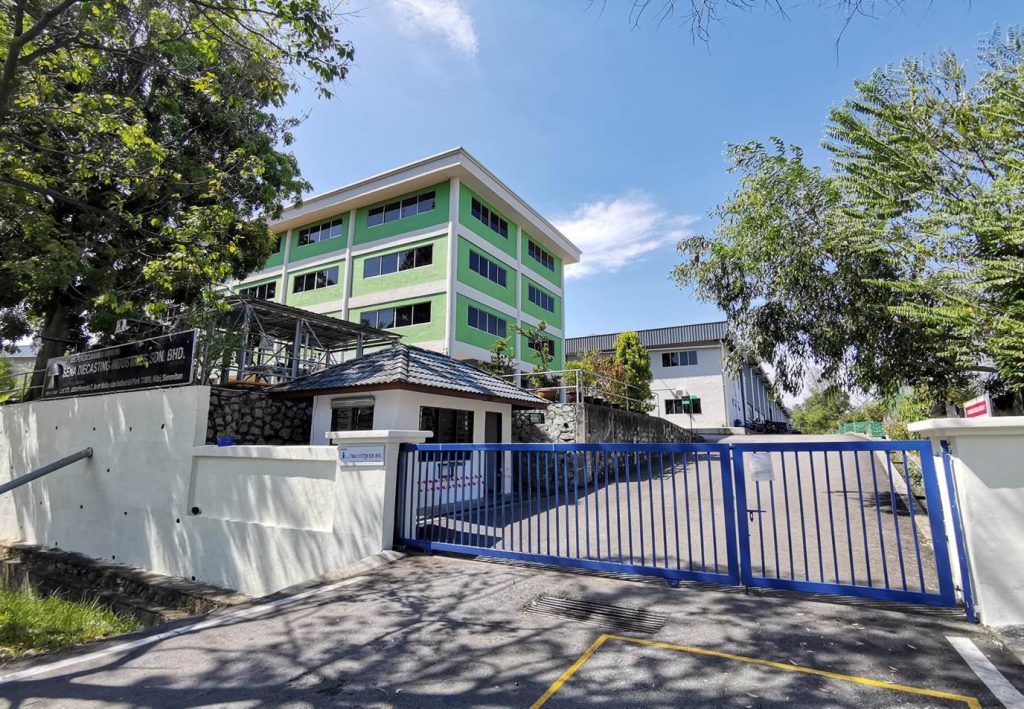
The automotive industry is one of the major users of die-cast parts in Malaysia making use of the process to make engine components including transmission housings, transmission components, and structural components. Materials that are lightweight, such as magnesium and aluminum alloys are favored in automotive die-casting due to their strength-to-weight ratio, as well as their durability to corrosion. The shift towards electric vehicles is a major reason for the increased demand for premium die-cast components which increase energy efficiency and performance of vehicles. Local companies that die-cast are working with automakers around the world to provide high-quality components designed to meet international quality standards. With Malaysia being positioned as the hub of automotive production within Southeast Asia, the die-casting industry is expected to expand even more, with the addition of automation and smart manufacturing procedures. This is due to the rising adoption of Industry 4.0 technologies that improve productivity and speed.
Apart from the automotive sector, die casting also plays key roles in Malaysia's electronics industry and is among the country's largest export industries. The accuracy and reliability of components made by die casting are ideal for the production of electronic cablings, heat sinks as well as connectors. Since consumer electronics and communications gadgets become smaller and more efficient, demand for precision die-cast parts will continue to increase. Malaysian producers are using innovative technologies like vacuum die casting and semi-solid metal casting in order to increase the quality of their products and minimize the chance of introducing defects. Through a solid supply chain and accessibility to international markets, Malaysian die-casting companies have positioned themselves as reliable suppliers for multinational electronics brands. As 5G technology and smart phones become widely used, demand for precision-engineered die-cast parts is expected to increase.
Sustainability has become a key aspect of Malaysia's die-casting industry and companies are striving to limit environmental impact while maintaining high quality standards of production. Reusing and recycling metals are standard practices in this industry, which helps to reduce waste and lower production costs. A lot of manufacturers have implemented efficient and energy-efficient casting techniques to reduce carbon emissions. Sustainable production has prompted use of more environmentally friendly processes including vacuum casting and low pressure die casting, which reduces waste of materials and increase the quality of products that are finished. Utilizing organic coatings and other surface treatments can further increase the lifespan of die-cast components without harmful impacts on the environment. With the shift of global industry towards greener production methods, Malaysian die-casting companies are making themselves pioneers in the field of the sustainable casting of metals. Government support for green initiatives and the industry's certifications help businesses take environmentally sustainable practices, while remaining competitive in the global marketplace. To get supplementary details please read this article

Continuous advancements in the design of molds and tools has greatly improved the efficiency and precision of die casting in Malaysia. Molds that are of high-quality are crucial to making components that are free of defects, and the manufacturers are utilizing computers-aided design as well as computer-aided manufacturing software to enhance the accuracy of their molds. Simulation software helps engineers predict potential defects and optimize the parameters of casting before beginning production which reduces waste material and increasing the consistency of product. Robotics integration and automated molding process has improved the efficiency of production and allowed manufacturers to produce large volumes of parts with little involvement from humans. These technological innovations have not just increased efficiency but also reduced cost, making Malaysian die-casting companies more competitive in the international market. As industries demand higher precision and efficiency, continued investment in mold design and the tooling process will be vital to sustaining the growth of the industry.
In the near future, the outlook of die casting in Malaysia is promising, with continued investing in the latest technology, sustainability and the development of workforce. Industry and government officials have joined forces to improve research and development to encourage the development of new the use of metal casting. The training programs and the skill development initiatives are also in place to equip workers with expertise on the most advanced technologies for die casting. As industries such as the electric vehicle, renewable power, and smart devices continue to expand, Malaysia's die-casting sector is well-positioned to meet the increasing demand for premium metal parts. The combination of strong production capabilities, modern technology and environmentally sustainable practices will ensure that Malaysia remains a key actor in the world die-casting business. As the industry continues to improve and strategically expansion, this industry is expected to drive economic progress while maintaining its standing as a leader in quality manufacturing and precision engineering.